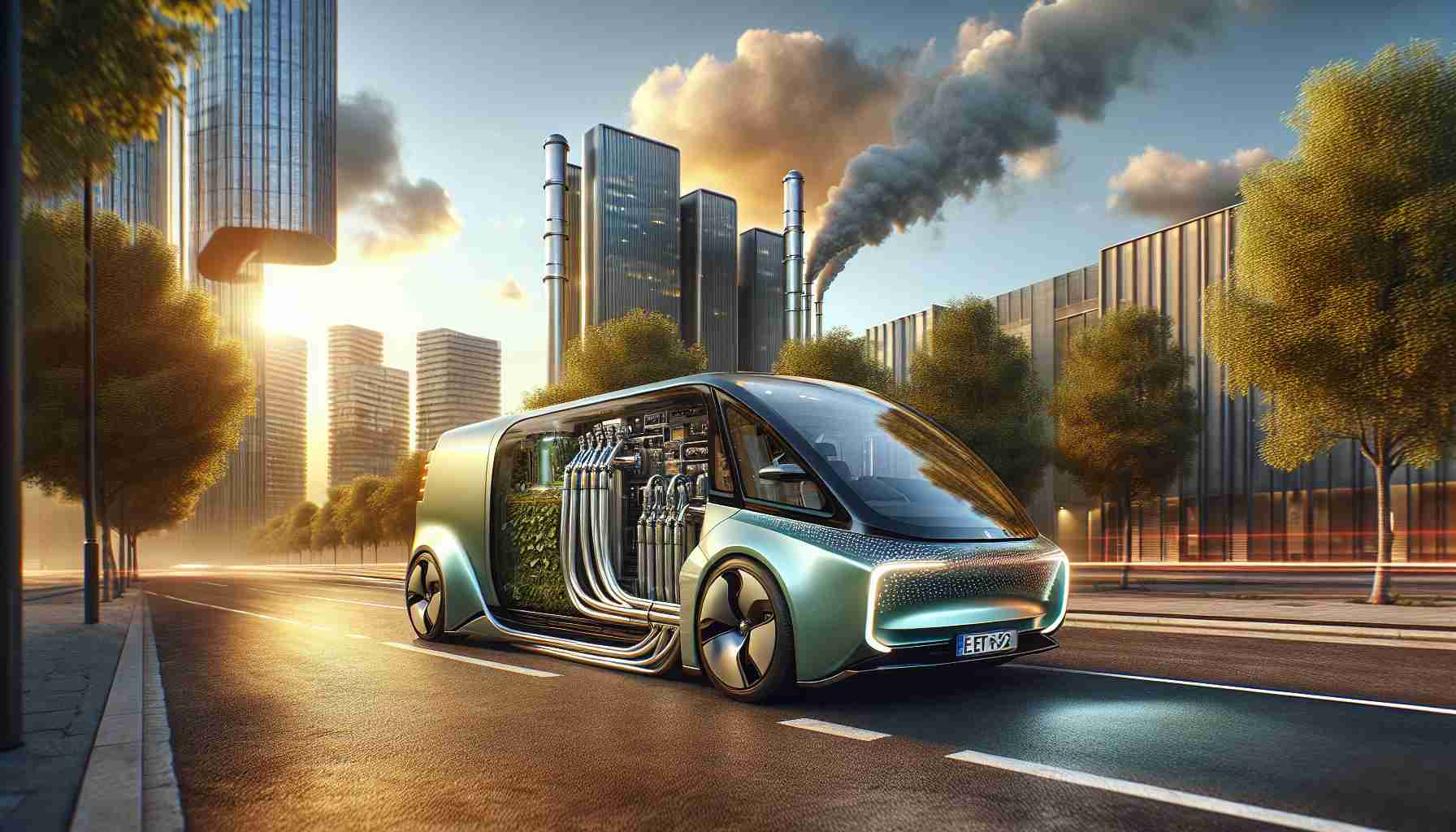Kawasaki Heavy Industries’ Hydrogen Innovations
In a groundbreaking video, Trauden visits Kawasaki Heavy Industries’ Akashi facility to explore the world of hydrogen-powered motorcycles. During her visit, she engages with engineers to uncover the extensive research and development processes driving this innovative technology.
Kawasaki Heavy Industries is at the forefront of hydrogen technology, making significant strides with the development of the world’s first liquefied hydrogen transport vessel. The company’s ambitious plans include successful operational testing of compact hydrogen engines for aircraft and the advancement of hydrogen-powered motorcycles. Their comprehensive strategy aims to broaden hydrogen-related initiatives as they target expansion by 2030.
With a firm commitment to sustainable transport, Kawasaki is spearheading initiatives in the hydrogen sector, showcasing their pioneering hydrogen engine motorcycles as a testament to their innovation. Their engineers are dedicated to overcoming challenges, ultimately paving the way for a cleaner, more efficient transportation future.
As they actively develop and test hydrogen technologies, Kawasaki’s vision encompasses not just motorcycles but a holistic approach to utilizing hydrogen across various modes of transport. The company’s efforts signify a daring leap towards a sustainable tomorrow, where hydrogen could redefine how we travel. In the coming years, keep an eye on Kawasaki’s progress as they lead the charge in the green transport revolution, making hydrogen a viable resource for generations to come.
Kawasaki Heavy Industries: Pioneering the Future of Hydrogen Transportation
Overview of Hydrogen Innovations at Kawasaki Heavy Industries
Kawasaki Heavy Industries is making waves in the hydrogen sector, focusing on sustainable and innovative transportation solutions. Their recent initiatives highlight a commitment not only toward developing hydrogen-powered motorcycles but also to revolutionizing various forms of transport through hydrogen technologies. This move aligns with their long-term vision for a cleaner, more efficient future.
Key Innovations and Developments
1. Hydrogen-Powered Motorcycles: Kawasaki’s exploration into hydrogen motorcycles demonstrates their commitment to alternative fuels. The company is designing motorcycles that utilize hydrogen engines, which promise reduced emissions compared to traditional internal combustion engines.
2. Liquefied Hydrogen Transport Vessel: As the first company to create a liquefied hydrogen transport vessel, Kawasaki is pushing the envelope in hydrogen logistics. This vessel is expected to play a crucial role in transporting hydrogen safely and efficiently, making it more accessible for various applications.
3. Compact Hydrogen Engines for Aircraft: In addition to terrestrial vehicles, Kawasaki is actively developing compact hydrogen engines intended for aircraft. This innovation could potentially transform the aviation industry by providing a cleaner alternative to jet fuel.
Pros and Cons of Hydrogen Technology
Pros:
– Sustainability: Hydrogen is a clean fuel, emitting only water vapor when burned.
– Diverse Applications: Applicable in various transport sectors, including motorcycles, ships, and planes.
– Reduction of Carbon Footprint: Moving towards hydrogen can significantly cut down greenhouse gas emissions.
Cons:
– Infrastructure Challenges: Limited hydrogen refueling stations can hinder widespread adoption.
– Production Concerns: Most hydrogen is currently produced from fossil fuels, which can negate its environmental benefits if not addressed.
– Cost: The development of hydrogen technologies and infrastructure can be costly.
Use Cases for Hydrogen Technology
– Motorcycle enthusiasts can look forward to eco-friendly riding options with the arrival of hydrogen motorcycles.
– Aviation industry stakeholders may benefit from reduced fuel costs and environmental impact through hydrogen propellant innovations.
– Maritime transport, with liquefied hydrogen vessels, could provide a sustainable method for shipping goods globally.
Pricing Insights
While exact pricing for hydrogen motorcycles and systems is still being finalized, it is anticipated that initial costs may be higher than traditional vehicles due to new technology development. However, as the production scales and infrastructure develops, prices are expected to decrease.
Trends and Future Predictions
As industries globally pivot towards sustainability, the demand for hydrogen-powered vehicles is expected to grow. Analysts predict that investments in hydrogen infrastructure will dramatically increase over the next decade, facilitating broader adoption. The success of Kawasaki’s initiatives may inspire similar developments by competitors, creating a robust market for hydrogen solutions.
Conclusion
Kawasaki Heavy Industries is at the forefront of hydrogen innovations, setting the stage for a future where hydrogen not only supports transportation but also contributes significantly to sustainability. With ongoing research and development, they continue to explore new avenues for utilizing hydrogen across various sectors. Keep an eye on their advancements as they spearhead this green transportation revolution, promising a cleaner, more efficient future.
For more information about Kawasaki Heavy Industries and their innovative projects, visit this link.
